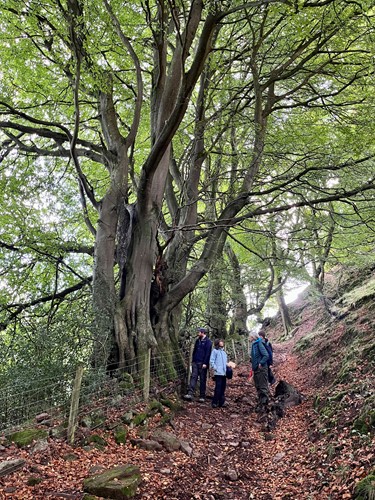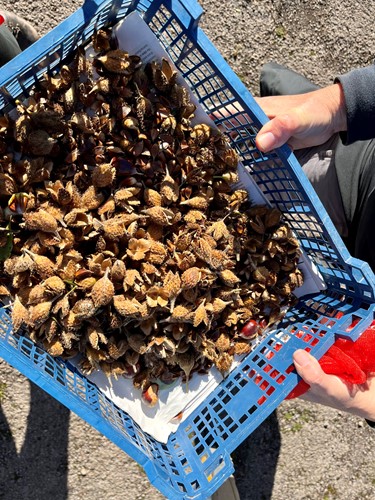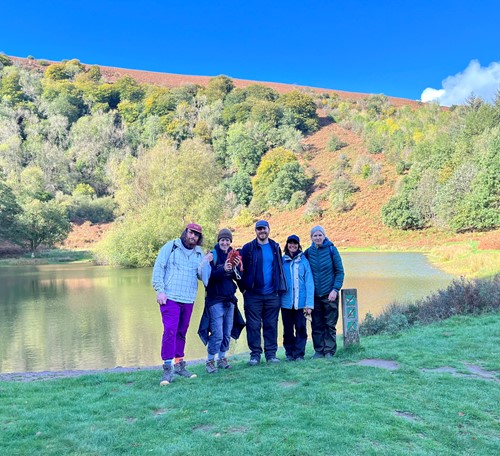Seed to Tree: Seed Collections

SUFT staff and volunteers have been busy this autumn searching our local area for native tree seeds to grow in our community tree nursery. Thanks to funding from the BBNPA, we have been able to expand the diversity of the seeds we hope to grow this year and to increase volunteer involvement with the whole process from seed collection to germination. A future aim is that we will be able to trace the entire lifecycle of our trees from where we found the seed to the hedgerow or woodland where the tree finally lives. This will allow us to learn a huge amount about our native tree species in this part of Wales and to enable school groups and other volunteers to appreciate the wonders and complexities of raising trees from seed.
One of the challenges we have been set this year is to find some more unusual species or species that are growing in special locations. This has tested the plant hunting skills and the local knowledge of many volunteers. Thanks to their efforts our seed gathering has been a great success. One of the species we needed to find was Beech. Although common in S.E Wales, the Black Mountains sees Beech growing at the most western and northern limits of its range. It prefers free draining soil so often struggles in wetter areas. Therefore, any Beech grown in our nursery needs to be from these more hardy and resilient woodlands.
Thanks to the kind permission of the Woodland Trust, a group of SUFT volunteers visited the magnificence Beech woodlands at the Punchbowl on the Blorenge mountain near Abergaveny. It was a perfect October day with amazing views. We had to time our visit just right, so the beech mast was ripe enough to be popping out of the cases but not too ripe that it had all been taken by squirrels or blown down in the storms. It was a very mindful experience and we all found our favoured techniques of getting the seeds in the bag and not on the floor. We saw some wonderful beetles and fungi living on the dead wood and enjoying the rich woodland understory.
 |
 |
 |
Another memorable challenge has been tracking down the elusive Wild Service Tree. This species has plentiful pollen and nectar for insects and can be an indicator species for ancient woodland. The fruit, also known as chequers, used to be prized by children and gathered to flavour drinks like whiskey. The fruits taste like dates and are very popular with flocks of birds in the autumn. This has made our quest for seed even harder as finding a tree before the birds has proved to be difficult. We do now have a bucketful of fruits ready to be processed at the nursery, thanks to the intrepid efforts of Liz and Keith. The next stage will be experimenting with germination techniques and recording our findings.
Our adventures in seed sowing have been greatly assisted by the building of our first ‘Tree Houses’. These amazing protective spaces for our seeds have been designed and built by Ian and Kirsty. We hope they will protect species such as Oak, Chestnut and Hornbeam from being eaten by birds, squirrels and rodents. With our extra funding from BBNPA, we are planning to build more of these houses as our seed sowing expands in the future.